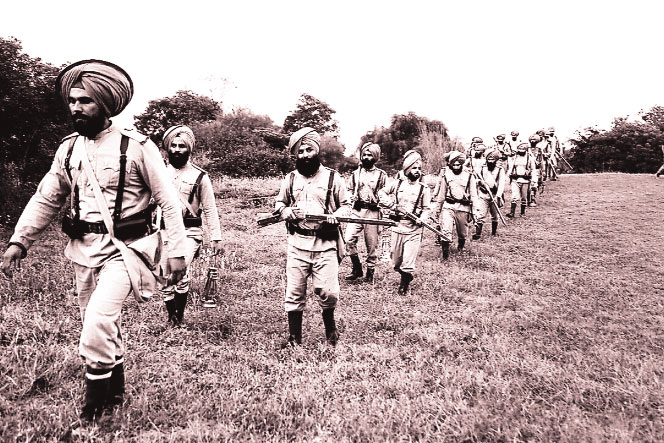last stand battles are always lost causes but one battle ,120 years ago, needs recollection
Sikh slogan, Jo Bole So Nihal, Sat Sri Akal, goes beyond just religious symbolism — it is the war cry of this martial race. And on this day, September 12, which is also the Regimental Battle Honour Day for all the battalions of the Sikh Regiment of the Indian Army, it would be prudent to remember why the battle-hardened Sikh community celebrates this day, above all other great days of military achievements so importantly. And what might seem strange to some is that the battle that is celebrated, ended in defeat and the deaths of every man who fought it. But if there is such a thing as a glorious defeat, the battle of Saragarhi is it. The very concept of a last stand, where soldiers often abandoned by a larger force fight till the death, has many examples in military history across the world. But few battles are so lopsided as the battle of Saragarhi which took place on the dusty plains north of Peshawar in what is today, Pakistan’s North West Frontier Province. This was the first time a Western power had tried to tame the wild tribes of greater Afghanistan. Saragarhi was a small signalling post between two British strong-points at Fort Gulistan and Fort lockhart and was manned by a small detachment of 21 Sikhs led by Havildar Ishar Singh. A huge number of Afghani tribesmen, mainly Orakzais and Afridis, had decided to attack this post to break the British line between two strong points and in thus doing expected to break the British forces. While the Afghans succeeded in driving the British eventually, just like they did the Soviets and seemingly the Americans as well, it was not going to be on that fateful day 120 years ago.
Outmanned and outgunned, these 21 brave men held on to the last man, who was the signalman Gurmukh Singh, who earlier in the battle, had been relaying constant updates about the state of the battle. Unable to send reinforcements, the officers and men at Fort lockhart watched on in amazement at how these 21 men held off a force a 100 times larger. All 21 men paid the supreme sacrifice when they well could have abandoned their position or sold out to the invaders, they managed to buy vital time and saved the lives of countless other comrades by doing their duty and killed over 180 of the attackers. The British Indian Army retook Saragarhi two days later in a brutal counterattack one objective of which was to retrieve the bodies of the fallen. Each of the soldiers at Saragarhi was awarded the Indian Order of Merit, the highest gallantry award available for colonial soldier then. While the battle is legendary among the Sikhs, both in the military and outside, it has been for a large part forgotten by the public. Partially this is because Indian military history was subjugated in classrooms in the name of cultural heritage. It is vital that India’s military heritage and history is taught in our schools and that the legend of Saragarhi becomes part of the curriculum.


























